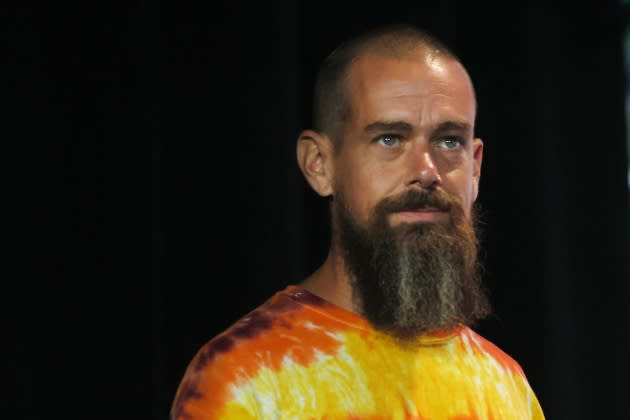Jack Dorsey Takes Blame for Twitter Failures, Will Give $1 Million to Signal
- Oops!Something went wrong.Please try again later.
- Oops!Something went wrong.Please try again later.

Twitter founder Jack Dorsey took the blame for Twitter’s controversial content decisions that the platform made under his leadership, while warning of content control by governments and corporations.
Dorsey started the statement in a Twitter thread but moved it to a blog post, explaining, “I don’t want to edit everything into 280 char chunks.” The founder said that he hoped to build a Twitter that was based on principles he had learned through his “past actions as a Twitter co-founder,” but that he “completely gave up pushing for those ideas after an “activist entered our stock in 2020.”
More from Rolling Stone
Free Speech Champion Elon Musk Bans Jet Tracker, Vows 'Legal Action'
Trump's Cringiest Reply Guys Are Out of Twitter Jail. Their New Target Is Elon Musk
“I planned my exit at that moment knowing I was no longer right for the company,” he wrote.
The principles he hoped to achieve as a public company — social media resilience to corporate and government control, user-controlled content, and moderation implemented by algorithmic choice — were not present when he led the company, nor in today’s Twitter, he said.
His statement follows the ongoing “Twitter Files” series currently touted by Elon Musk, the new Twitter CEO, as exposés of “free speech suppression.”
Dorsey addresses the suspension of Trump’s account, one of the major topics during the third installment, and admitted, “We did the right thing for the public company business at the time, but the wrong thing for the internet and society.”
“The biggest mistake I made was continuing to invest in building tools for us to manage the public conversation, versus building tools for the people using Twitter to easily manage it for themselves,” he explained. “This burdened the company with too much power, and opened us to significant outside pressure (such as advertising budgets).”
Still, despite the hyperbole surrounding the Twitter files, the Twitter co-founder wrote that “there was no ill intent or hidden agendas, and everyone acted according to the best information we had at the time.” Dorsey also discusses how transparency and moderation are key to improving the social media platform, and says that he wishes the leaks “were released Wikileaks-style, with many more eyes and interpretations to consider.” Instead, Musk and select conservative journalists cherry-picked documents to release to the public, often doling them out without proper context. Following the release of the files, there have been reports of attacks on former employees, which Dorsey addressed: “The current attacks on my former colleagues could be dangerous and doesn’t solve anything. If you want to blame, direct it at me and my actions, or lack thereof.”
The co-founder touched on potential solutions for new Twitter under Musk’s helm, and proposed a set of ranking and relevance algorithms that users could build and choose from to match their needs (or not use at all). Notably, in a recent interview with Reuters, Ella Irwin, who was installed as Twitter’s new head of trust and safety, said Musk encouraged the company to rely more on automation and less on human review when making content moderation decisions.
Dorsey also announced that he will begin funding Signal, which has remained resilient to government control, with $1 million a year. He stated that more grants would be issued. “I’m going to open a new category of #startsmall grants: ‘open internet development,’” he said. “It will start with a focus of giving cash and equity grants to engineering teams working on social media and private communication protocols, bitcoin, and a web-only mobile OS.”
He asked readers to send potential candidates his way, which shouldn’t be too hard a task as Matt Taibbi shared the co-founder’s email in the first “Twitter Files” run.
Best of Rolling Stone
